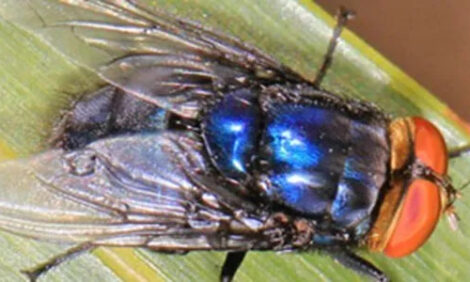



Diet And Autism Research Focuses On Dairy
TEXAS, US - Researchers at The University of Texas Health Science Center at Houston have embarked on one of the first double-blind, clinical studies to determine whether gluten and dairy products play a role in autistic behavior as parents have anecdotally claimed.The pilot study is one of seven current studies on autism in the Department of Pediatrics and the Department of Psychiatry and Behavioral Sciences at The University of Texas Medical School at Houston.
“There’s a lot of misinformation, so that’s why this study is so important,” said Fernando Navarro, M.D., assistant professor of pediatrics at the medical school and lead investigator of the study. “Hundreds and hundreds of parents think this works but we need serious evidence.”
* "Hundreds and hundreds of parents think this works but we need serious evidence." |
|
Fernando Navarro, M.D., assistant professor of pediatrics at the medical school and lead investigator of the study.
|
Autism is a complex neurobehavioral disorder linked to early abnormalities of brain development. According to the National Institute of Neurological Disorders and Stroke, it affects up to six of every 1,000 children and is characterized by impaired social interaction, problems with verbal and nonverbal communication and unusual, repetitive or severely limited activities and interests.
Researchers have discovered that there are differences in the central nervous system’s anatomy and function in those diagnosed with autism, but the cause of the disorder is unknown. Experts theorize it may be a combination of genetics and environment.
“A lot of children with autism have gastrointestinal problems such as constipation and diarrhea. Whether these problems are related to brain development is open to question,” said Katherine Loveland, Ph.D., co-investigator and professor of psychiatry and behavioral sciences, pediatrics and biomedical sciences at the health science center. “There are neurotransmitters and neuroreceptors in the gut that correspond with those in the brain. There are some scientific reasons to think that some kids may benefit from this diet.”
For the double-blind study, funded in its initial phase by supplemental funds granted by the Department of Pediatrics, researchers will enroll 38 autistic children ages 3 to 9. They will look at the influence of gluten and milk proteins in the intestinal function. Gluten is a protein in wheat; casein and whey are proteins in milk. Casomorphin, a peptide in milk; and gliadomorphin, a peptide in gluten, are thought to be related to changes in behavior in these children. Children will be taken off gluten and dairy products before the four-week study and then half will be given gluten/milk powder and half will be given a placebo powder.
TheCattleSite News Desk


